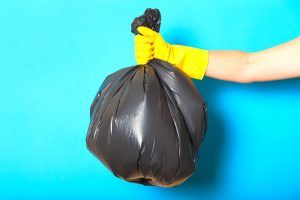Most people don’t give their trash a second thought once they’ve brought it to the curb. However, the contents of that garbage can be life-altering for suspects in criminal cases. As our Broward criminal defense lawyers can explain, so-called “trash pulls” are an increasingly common means for police and prosecutors to obtain incriminating evidence in cases – ranging from drug offenses to sex crimes to identity theft to murder. The practice is particularly popular with narcotics squads and sex crimes divisions. 
Evidence obtained from discarded trash bags can be used to obtain a search warrant into your home, your office, and your person. DNA gleaned from the contents of one’s trash – on cigarette butts, bottle tops, plasticware – can be tested and used to make a case. Seeds, stems, or traces of cocaine can be used to justify a search warrant where the cops may have otherwise had clearly insufficient evidence.
Knowing that your garbage may be the target of police attention isn’t something at the forefront everyone’s mind, but it’s something to be mindful of if you know you’re the subject of a criminal investigation.
Isn’t Going Through Someone’s Trash an Invasion of Privacy?
The main question that arises in “trash pull” cases is whether digging through someone’s refuse is a violation of privacy. However, the courts have ruled time and again that there isn’t a reasonable expectation of privacy.
For example, in the 1981 case of Stone v. State, Florida’s 1st District Court of Appeal held that a defendant did not have a reasonable expectation of privacy when he placed items in a sealed, opaque trash container on his own property. In that case, police got a tip that the defendant was dealing cocaine. A police detective rode along with garbage collectors one day, and took custody of several twist-tied garbage bags from the suspect’s home that were otherwise headed for the landfill. When the contents of those bags were later examined, police found controlled substances residue. Those findings formed the basis of a search warrant, during which time police found further evidence to base a drug trafficking arrest. The defense argued the evidence gleaned from the garbage was inadmissible because it was unlawfully obtained. But the court held that items in a garbage bin set to be gathered and discarded by garbage collectors is considered abandoned property. Abandoned property is that which one intends to forever part with. When a person abandons their property, there is no reasonable expectation that it will remain private.
The court in that case held that while a person might demonstrate intention to forever part with trash by putting it in a container at the rear of his/her home or garage, they might still have a reasonable expectation of privacy so long as it’s still retrievable. However, once it’s deposited in the swale for collection, the courts generally consider it unreasonable to expect its security once it’s tossed in with all the other trash. As noted in the federal appellate court check fraud case of U.S. v. Mustone, abandonment of property is – by definition – a renunciation of any reasonable expectation of privacy for that property.
The question of privacy expectations isn’t clear-cut, but sometimes comes down to whether the garbage in question was readily accessible to the public. For instance, if it’s still sitting in a bin just outside your house next to your property, you might still have a reasonable expectation of privacy with regard to the contents. However, once it’s at the curb, ready for collection, that expectation may no longer be considered reasonable. Courts have held that the issue should be weighed on a case-by-case basis. In the 2006 federal appellate case of U.S. v. Segura-Baltazar, the court held that even if the garbage was still in the curtilage, it was still considered “abandoned” because sanitation workers routinely collected legally-abandoned garbage – even if it wasn’t totally on the curb in preparation for pickup.
How Substantial Can Trash Pull Evidence Be?
The impact of trash pull evidence will depend on the particulars. Florida courts have held that a single trash pull that turned up evidence of drug use wasn’t enough to establish probable cause to search someone’s home.
However, if a trash pull reveals evidence that someone is dealing drugs, then it might justify a search warrant of the home. For example, in the 1998 case of Raulerson v. State, Florida’s 4th District Court of Appeal held that an anonymous tip that led to the search of six trash bags revealing a few partially-smoked joints, stems, and seeds was not sufficient to base a search warrant on. There was a lack of other sufficient facts to indicate a fair probability that marijuana would be discovered in the home of the defendant.
It is worth noting that if the basis of the search warrant is deemed an insufficient foundation for probable cause, then any evidence obtained through that search warrant can be deemed inadmissible. So if officers do cite the contents of a trash pull as part of their search warrant, our criminal defense lawyers will be carefully scrutinizing their reasoning.
Call Fort Lauderdale Criminal Defense Attorney Richard Ansara at (954) 761-4011. Serving Broward, Miami-Dade and Palm Beach counties.
Additional Resources:
THE STATE OF OUR TRASH IN FLORIDA: THE USE OF EVIDENCE FOUND IN RESIDENTIAL GARBAGE TO ESTABLISH PROBABLE CAUSE TO SEARCH A CITIZEN’S HOME, Jan. 2008, By Jim Jenkins, Florida Bar Journal
More Blog Entries:
When False Imprisonment Charge is Part of a Florida Domestic Violence Case, Dec. 28, 2022, Florida Criminal Defense Lawyer Blog
 Fort Lauderdale Criminal Attorney Blog
Fort Lauderdale Criminal Attorney Blog


